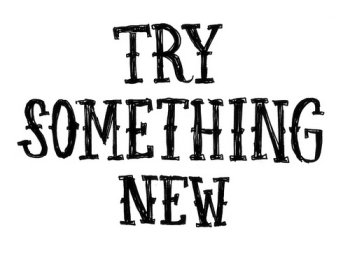How to Prepare for a Recession

Let me say up front that I don’t know when the next recession will begin. They say you only know a recession happened after the fact because there must be 2 quarters of lost productivity. Most recessions are short enough that we get through them without much suffering. But everyone alive now remembers the Great Recession. That was a really rough time for my family. Three of us were out of work for a few months. When you run into financial problems they say you should turn to your family but that wasn’t an option for us. We had to look for other ways to get by.
Not long ago I realized there doesn’t have to be a nationwide recession for a family to hurt. If your community loses a lot of jobs, as when a factory shuts down, you’re in a recession. It could be your industry that feels the pain, not just the city you live in. By the time you realize there are no jobs for you it’s too late to begin prepping for a recession. It’s already here.
In that vein we should always be ready for a recession. Short of putting a million dollars in the bank I don’t know what anyone can do to avoid the hardship. But there are a few things I wish I had done differently last time around. Here is what I am working on today.
Put Money Into Savings
Whether you have $300 or $3000 in savings doesn’t matter. If you run into an emergency and you have no cash, you have to start using your credit cards. And the last thing you want when you lose your job is to be carrying high balances on your credit cards.
As I write this I just cleaned out my savings account. I had to do it but I knew this day was coming. I’ll be okay because I’ll replace my savings from my next paycheck.
My wife and I agreed that no matter how small the contribution we’ll put something into savings from every paycheck. I’m not ashamed to admit there were some paydays where I could only spare $5. That’s a cheap fast food lunch. I took a sandwich to work to make up for the missed lunch.
As long as you keep “paying yourself first” you live on less than you make. That’s the important point. If you’re living on less than you earn then when the time comes to replace your income you can settle for a little less if you must.
Pay Off As Many Credit Cards As Possible
When I came out of the last recession I nearly declared bankruptcy. My dad told me not to do that if I could because even though you’ll get lots of credit offers building up good credit takes longer.
Creditors want to see a history of timely payment on your debts. They also want to see that you don’t carry much debt. That’s easier to say than it is to live up to. But I made one mistake I wish I could take back. I was so frustrated with my debts that I closed a few credit cards when I paid them off. Closing those accounts hurt my credit and I didn’t know why for a while.
The best thing you can do is keep your credit in reserve. Don’t use it, except to keep your accounts active. Pay off your credit accounts as soon as possible. I’m still working on a few cards but we’re doing okay. We have 3 we almost never use and they have pretty good limits.
Refinance Your Car Loan
If you’re like me you bought too much car last time around. Worse yet, you probably got financing through the dealership. That’s the worst way to buy a car. But we all do it because they make it so convenient.
Well, you don’t have to live with a bad car loan if you don’t want to. Go talk to your bank or credit union and ask them to refinance your car for you. You can negotiate a lower interest rate and that will lower your payments.
Don’t wait until you’re in financial distress to start looking for a better financing deal. Get out from under a bad car loan now if you can. And the same is true for your mortgage or anything else you financed.
Sell Your Boat or RV
I don’t have a boat or RV. Sometimes I wish I did but much as I love to travel during the summer I can’t afford to do that much. We have kids and they come first. Yes, we take vacations but they are family budget vacations.
If you have a boat or a recreation vehicle that you are not using then why are you hanging on to it? Sell it now while other people have money. Get it out of your yard and put that money in the bank.
Which Is More Important: Savings or Paying Bills?
This is a tough question to answer. For most people who are doing okay the best thing you can do is make your minimum payments plus a little extra and put the rest of your money into savings.
You need a cash reserve to fall back on in case you have an emergency. Yes, you can use a credit card to cover emergency expenses but it’s better to have a balance in your savings account.
But how much money should you save up before you pay down all your bills? If you follow the standard advice you’ll keep saving until you have “six months’ expenses” in the bank. I do the math every year and I have to tell you, I’m never going to have six months’ expenses in my savings account. The last time I had more than a few thousand dollars saved up it made me feel sick. I put some of that money to work in a stock index fund and I used the rest to pay off some bills.
You have to make a decision.
As recently as 2016 about 2/3 of Americans could not have covered a $500 expense with cash. That’s a scary thought. If you want to set an achievable financial goal that makes you feel good, why not aim to put $750 in a savings account? You’ll have more cash on hand than most people in the world. We forget we’re the richest nation on the planet. In some countries $500 is a years’ salary.
The Best Way to Prepare for a Recession
if you have relatives who are a little behind on their bills, and you can help them, maybe you can work out a plan. We are all stronger when we work together. I know that nothing causes people to fight more than money, but if you and your siblings can see beyond differences in opinion and work toward common goals, you’ll be better prepared for a recession.
One of the coolest stories I’ve read this year is about the way minority communities in California pool their money to finance homes and businesses. These informal lending groups take the place of banks and credit unions. They help people avoid going to predatory lenders like title companies, payday loan companies, and neighborhood loan sharks. Maybe there is a good-hearted loan shark out there who won’t break your legs when you fall behind on payments, but if you can get a better interest from your friends and family that’s a safer arrangement.
Help people now whom you may need help from in the future. And if they don’t need help, consider pooling your resources in other ways. By strengthening your ties to people who care about you and who won’t gouge you with high interest rates you’ll have a fallback plan that no recession can take away from you. If you don’t have the money to work with now, maybe you and your close associates can create the pool of funds you need to help everyone get ready.
The only other advice you would need is a written contract that spells out everyone’s obligations and expectations. That way you’ll head off some disputes before they happen.


